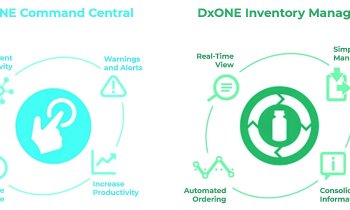
Source: Pixabay/CC0 Public Domain
News • Covid-19
Preparing for another outbreak
What will the next pandemic look like? Health officials from across the globe gathered in Geneva in late August at a World Health Organization meeting to focus on how lessons learned from Covid-19 might best prepare civilization for the "next one."
Titled "Scientific Strategies from Recent Outbreaks to Help Us Prepare for Pathogen X," the conference brought together leaders in research, pharma, government and nonprofits. Among the speakers was Jun Wang, an associate professor in the Department of Medicinal Chemistry at the Rutgers Ernest Mario School of Pharmacy. Wang has conducted extensive research into antiviral drug resistance — when influenza virus and SARS-CoV-2 evolve and are no longer affected by medicines designed to treat them. Wang discusses some of the big ideas coming out of the conference.
What makes world health leaders so sure there will be another pandemic?
If you look at history, you can see that infectious disease pandemics are occurring more frequently. The human population is growing. We keep encroaching upon, invading the territory of wild animals that are reservoirs of pathogens—viruses, bacteria, and other deadly microbes.
It is highly likely that, just as we saw with COVID-19, new pathogens will continue to jump species as human territory overlaps with that of wild animals. When it comes to discussing "the next one," it's not a matter of if, but a matter of when.
What will 'Pathogen X' be like?
It's possible it could be an entirely new pathogen that jumps species, moving from infecting an animal to sickening humans. But we know about the most obvious candidates for Pathogen X because these infectious diseases are already out there from recent decades: flu, Zika virus, Ebola, dengue, Nipah, Rift Valley fever and monkeypox. They have already killed and harmed people but have not spread throughout human populations on the scale of Covid. However, those bugs continue to evolve and, sooner or later, with the extent of human travel and population growth, any one of them might become widespread and cause big problems.
If we don't know for sure what the nature of Pathogen X will be, can we actually prepare? Are there lessons learned from Covid-19 that apply, nonetheless?
We certainly can prepare — and we must. We've learned many lessons from our battle with Covid and we can apply many of those insights now.
First, we should start developing vaccines and antivirals for the high-priority pathogens listed by the World Health Organization. The goal is to have drug candidates that pass Phase I clinical trials so they can be immediately available for Phase II and III trials when outbreaks emerge. Second, we need to study drug resistance in parallel to drug development. We know resistance is inevitable. Related to our research at Rutgers, we are currently working on predicting how SARS-CoV-2 can evade Pfizer's oral drug nirmatrelvir. It's just like playing chess, right? We must be one step ahead. If we know, we can start to design the second generation of drugs to escape the resistance problem. Third, we learned about the value of disease detection and making testing kits widely available. Antivirals typically only work at the early stage of infection, so a fast and accurate testing kit is essential.
Combating a pandemic requires consolidated efforts from basic science researchers, clinicians, government agents, biotech companies, pharmaceutical industries and the whole society. How can you speed up clinical trials? How can you speed regulatory approval? With Covid, we did come up with vaccines and some treatments quickly, but we will need to work harder and creating new, more adaptable systems to allow more innovations to move through the system more quickly. Those are key issues that must be solved if we want to do better in the next event.
What's an important message you would like the public to know from your own experiences and insight?
The public generally pays more attention to chronic diseases than it does to infectious diseases. Perhaps that's because so many survivors of chronic disease are among us, often in pain, while those who contract infectious diseases either pass away or recover without treatment, so they do think it is important. With Covid, we lost over 6.5 million people worldwide. So the important message for Pathogen X is basically that we should devote more funding and resources for infectious diseases. We can never, never underestimate the evolutionary power of pathogens.
23.09.2022










